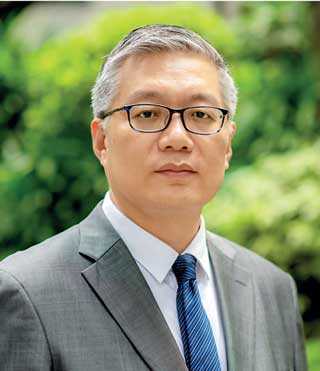Wednesday Feb 25, 2026
Wednesday Feb 25, 2026
Tuesday, 25 February 2020 01:30 - - {{hitsCtrl.values.hits}}
The new Asian Development Bank (ADB) Country Director in Sri Lanka, Chen Chen, assumed office in Colombo yesterday.
“I am honoured to assume the role of Country Director at ADB’s Sri Lanka Resident Mission. I have had the opportunity of managing ADB’s transport sector portfolio in Sri Lanka in the past, and have gathered insights about the country’s development needs,” Chen said. “I look forward to further strengthening ADB’s partnership with the country and supporting its development in public and private sectors.”
 |
| Asian Development Bank (ADB) Country Director in Sri Lanka, Chen Chen |
Chen succeeds Sri Widowati who retired from ADB in September 2019.
In a career spanning nearly two decades, Chen, a Chinese national, joined ADB in 2007, and has worked in the organisation’s Pacific and South Asia Departments, overseeing projects in Bangladesh, Bhutan, India, Nepal, Papua New Guinea, Sri Lanka, and Timor-Leste.
Since 2017, Chen was the Senior Advisor to the Vice President (Operations 1) and led quality management on strategies, business plans, projects and technical assistance in 16 developing countries in Central and West Asia, and South Asia.
Chen holds a Ph.D. in Civil Engineering from the Virginia Polytechnic Institute and State University (Virginia Tech), United States, a Master’s degree from South China University of Technology, and a Bachelor’s degree from Tsinghua University, People’s Republic of China. He has authored 16 publications on transport asset management, climate change, and public-private partnership, including three in peer-reviewed journals.
Sri Lanka has been a member country of ADB since 1966. Since then, ADB has provided Sri Lanka with $10.0 billion in loans and grants, including $818.0 million in 2019 alone. ADB’s priority areas for support in the country are transport, energy, urban development (water supply and sanitation), education, and finance.
ADB is committed to achieving a prosperous, inclusive, resilient, and sustainable Asia and the Pacific, while sustaining its efforts to eradicate extreme poverty. Established in 1966, it is owned by 68 members—49 from the region.